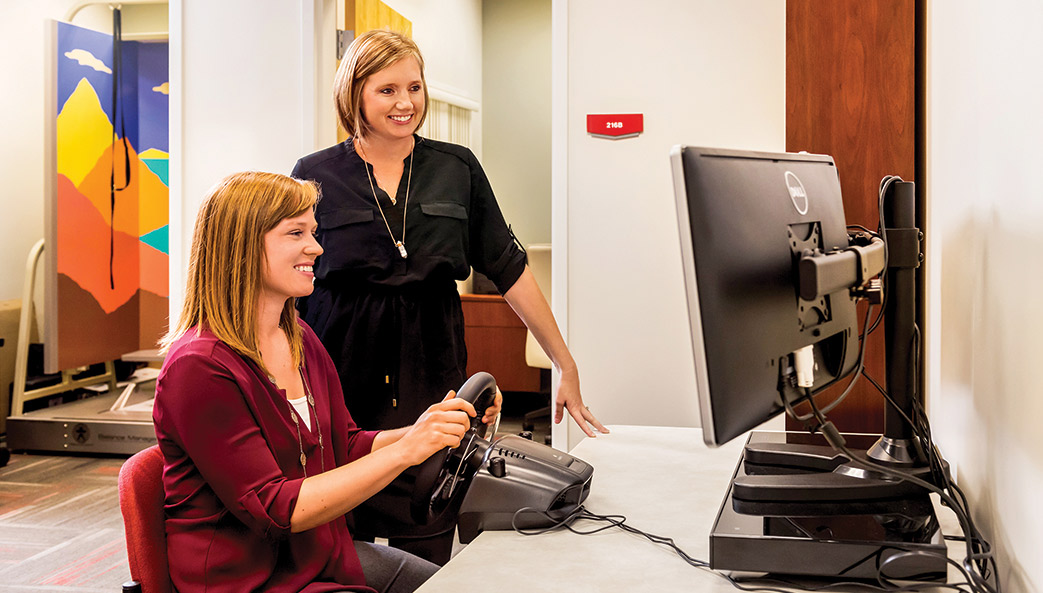Concussion research typically has focused on how the injury affects athletes. But a research effort at UGA is the first of its kind to study how a concussion affects a person’s ability to drive.
Julianne Schmidt, associate professor in the College of Education’s department of kinesiology and lead author of the study, said that even when participants felt that they had recovered from a concussion, they were still likely to drive erratically while using a driving simulator, much like someone under the influence of alcohol.
“They had less vehicle control, and they swerved more within the lane,” Schmidt said. “They were performing very differently compared to people who were not concussed.” This implies that driving should be restricted beyond the point when symptoms clear, she said.
The study, recently published by the Journal of Neurotrauma, included 14 college-age participants, all of whom were within 48 hours of no longer feeling the physical effects of their concussions.
The Schmidt team’s next step is to determine more precisely when concussion patients’ driving abilities improve. The team plans to devise guidelines to help determine when driving should be restricted.






